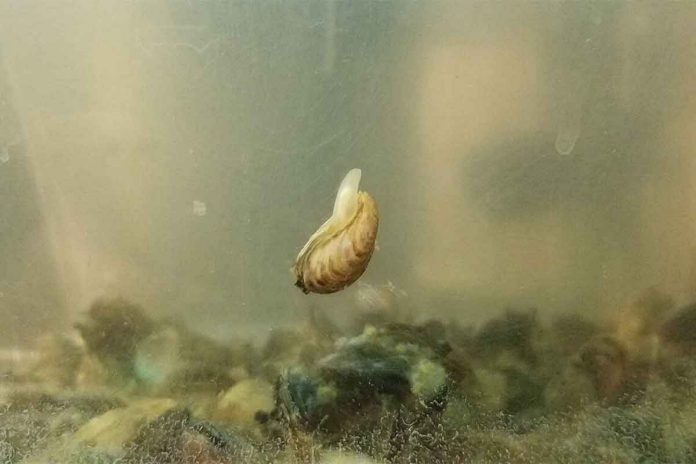University of Toronto’s Faculty of Applied Science & Engineering and Institute of Biomedical Engineering scientists have studied both zebra and quagga mussels for years. Scientists hoped that they will be able to solve a diverse range of challenges.
Zebra and quagga mussels are native southern Russia and Ukraine’s lakes and rivers. In the 1980’s, they arrived in the Great Lakes of North America. They hitched a ride in the ballast water of ships that departed from Europe.
They have become invasive in many North American waterways. They have displaced native mussel species and fouling boats and other infrastructure.
A study published in Scientific Reports have outlined new techniques for measuring the adhesion of zebra and quagga mussels to various surfaces.
Scientists improvised solution involved a pair of fine-tipped a digital camera and a force gauge. They measured how much force was needed to break the protein-based glue that the mussels secrete.
Scientists found that the mussels adhered more strongly to glass than they did to plastics such as PVC or PDMS. Scientists expected that, as glass is a hydrophilic material similar to the rocks which the mussels use as substrates in nature. PDMS repels water and is applied to boat hulls to prevent biofouling.
Scientists have scanned the glue left behind on the surfaces using electron microscopy, after the threads had been detached.
Scientists also continued their research in the area. Scientists are also experimenting on new types of surfaces to prevent fouling of critical infrastructure. Scientists also analysed the glues produced by both zebra and quagga mussels. They wanted to mimic them in biomedical adhesives.

